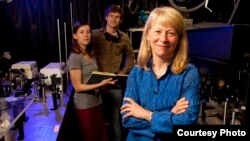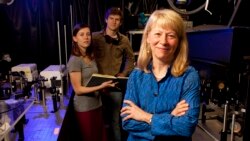Since taking office in 2009, President Barack Obama has made our nation’s commitment to science, technology and innovation a core element of engagement with the international community. In a speech that year in Cairo, the president announced the U.S. Science Envoy program to help promote this goal.
Under the initiative, distinguished American scientists engage with the governments and citizens of other nations to develop partnerships, improve collaboration and forge mutually beneficial relationships to stimulate increased scientific cooperation and foster economic prosperity.
Science Envoys travel as private citizens and advise the White House, the Department of State, and the scientific community about potential opportunities for cooperation abroad. They share the knowledge and insights they gain from their travels and interactions with officials here, and contribute to further cooperation and dialogue with key foreign partners. Since the program’s inception Science Envoys have visited more than 20 nations.
Last week it was announced that Dr. Geraldine Richmond, a professor of chemistry at the University of Oregon and an expert on women in science, will travel as a U.S. Science Envoy to Thailand and Vietnam this month.
She will meet with representatives from the scientific, academic, and business communities to discuss ways to build and strengthen research collaboration networks between scientists and engineers in our three nations. Professor Richmond is recognized for her work on complex surface chemistry, with relevance to important problems in energy production, environmental remediation, atmospheric chemistry and bio-molecular surfaces. She has also played an important role in setting our country’s national scientific agenda through her service on many science boards and advisory panels.
Professor Richmond’s trip to Vietnam and Thailand, the first by a U.S. Science Envoy to those nations, demonstrates the United States’ continued commitment and engagement with the nations of Southeast Asia.






